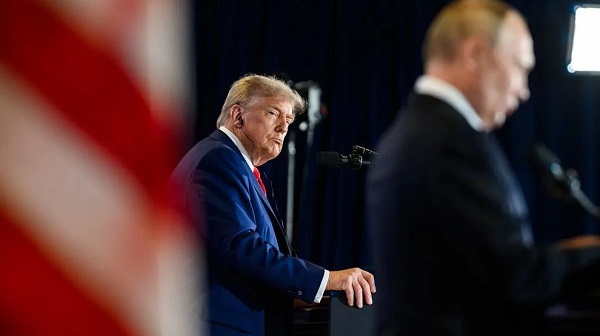From The Center Square
The in-person meeting between President Donald Trump and Vladimir Putin has apparently been called off, days after it was announced the two leaders had planned to meet in Hungary.
The White House released a statement saying that, due to a “productive call” between Secretary of State Marco Rubio and Russia’s Foreign Minister Sergey Lavrov, an in-person meeting between Rubio and Lavrov “is not necessary.”
It went on to say that there are currently no plans for Trump and Putin to meet “in the immediate future.”
It is unclear if the meeting was called off due to a breakdown in negotiations between the two countries.
On Thursday, the president announced that following a phone call that he described as “a very productive one,” the two had agreed to meet in Budapest, to work on bringing the “’inglorious’ war” between the two Eastern European countries to an end.
The proposed meeting between Trump and Putin would have been the second time the two would have met this year. Trump met with Putin in August, where the two appeared to make progress, opening the door for a meeting between Zelenskyy and Putin. The meeting between the two Eastern European leaders has yet to happen, despite hopes from Trump that it would lead to peace.
On Friday, the president hosted Ukrainian President Volodymyr Zelenskyy at the White House. Trump pushed for the two leaders to “make a deal.”
“The meeting with President Volodymyr Zelenskyy of Ukraine was very interesting, and cordial, but I told him, as I likewise strongly suggested to President Putin, that it is time to stop the killing, and make a DEAL! Enough blood has been shed, with property lines being defined by War and Guts,” the president posted to Truth Social Friday evening. “They should stop where they are. Let both claim Victory, let History decide!”
The president pleaded with the leaders to stop shooting, “no more Death, no more vas and unsustainable sums of money spent.”
The president has stated that he is eager to strike a peace deal between the two countries, noting that he believed the war would be easier to resolve, and adding that there is a lot of bad blood between the two leaders.


















